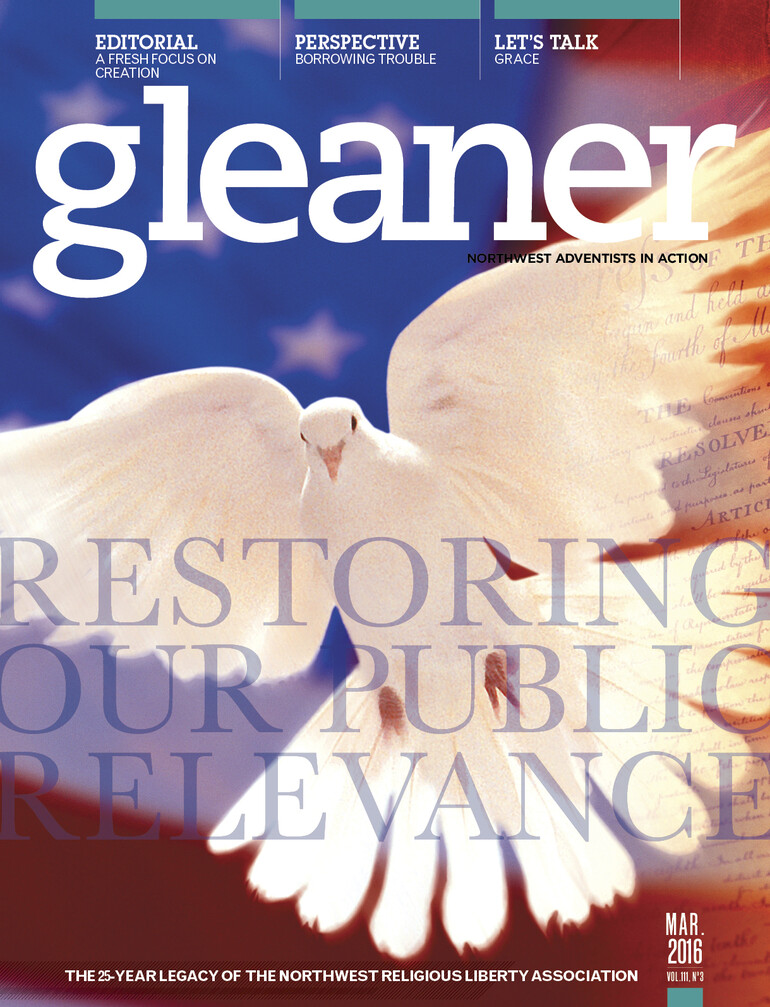One of the most important roles in any group project, whether it be for work, school, church or even family, is electing someone to worry. While people inevitably volunteer to make phone calls, write up data, edit data or order lunch (usually my job), hiring someone to freak out really pulls everything together.
Depending on the magnitude and intensity of the assignment, I let the worrier know that the best way to help everyone out is to stand in a corner and imagine all the horrible things that can go wrong. If this person can wring his or her hands, cry or pull out his or her own hair, I consider that a bonus. Yes, when engaging in important decisions, one really can’t place enough emphasis on those who promise to use all their energy to imagine heretofore-nameless horrors into existence — and share them with everyone.
Worrying feels helpful, even like working, because it requires substantial creative and emotional energy. Intense anxiety and worry can cause faster heart rates, muscle tension, shortness of breath and sweating — just like a good workout. Of course, unlike a good[1] workout, it will kill you. So … yeah, maybe I should stop asking people to freak out; but that’s unlikely to make them stop.
When we speak of stewardship it usually refers to finances, and one of the statistics we like to point out for people in the global West is our tendency to borrow more money than we are able to pay back. However, we are not only in financial debt, we are in emotional debt.
In the gospels, Jesus tells His followers, “But seek first the kingdom of God and his righteousness, and all these things will be added to you. Therefore do not be anxious about tomorrow, for tomorrow will be anxious for itself. Sufficient for the day is its own trouble” (Matt. 6:32–34). According to Christ, our day’s trouble budget is full — but according to various studies we feel like we need more. While American stress levels, overall, are down, they are still much higher than is deemed healthy (US News, 2015). While a number of concerns (including financial) contribute to worrying and anxiety, I believe faith communities seldom broach the subject of emotional stewardship. Our American way of life praises hard work and personal achievement but still wrestles with rest and simplicity.
From conversations I have as a pastor, people feel guilty if they don’t have an incessant amount of things to do, or they place so many heavy expectations on themselves that their minds drift from the present into a dark future where they inevitably let themselves, maybe even God, down. Thursday might be going well, but, instead of appreciating a good day, people’s minds wander to Monday when various assignments, meetings or responsibilities are due. Their stress account may have been low but now it fills up with borrowed anger and angst rendering them joyless in the present. Sometimes it even paralyzes them in the present so they can’t perform the simple tasks today that would make their tomorrows a success.
Adventists, with their unique view on future events outlined in prophecy, are susceptible to this. We conjure up times of trouble before they happen — and usually create present trouble in the process. We speculate on presidential policies, keep an eye on Islam and enjoy pope-watching — waiting for an enforced day of worship or persecution.
The result is overdrawn emotional accounts that leave us emotionally bankrupt. We aren’t able to “love one another” (John 13:34) because we are too full of fear of the future.
One of my favorite authors, Mark Twain, wrote, “I am an old man and have known a great many troubles, but most of them never happened.” I am not an old man, but I know what he means, and I am sure you do too. So often my worst-case scenarios become least-likely scenarios.
Now don’t misunderstand me; there is nothing wrong with thinking ahead. Matter of fact, Jesus tells us, “For which of you, desiring to build a tower, does not first sit down and count the cost to see if there is enough money to finish it?” (Luke 14:28); but there is a difference between thinking ahead and worrying ahead. Thinking ahead brings life, but worry adds nothing (Luke 12:25).
So what do your emotional accounts look like? Have you been borrowing trouble or only spending the emotional energy you have for today? Just as managing a financial budget takes discipline, tools and counsel, so does emotional budgeting. This month, take time to reflect on Jesus’ counsel on worry, share your struggle with a trusted friend and develop an awareness of your emotional spending habits so you can experience a greater sense of peace.
[1] "Good" as in appropriate for your level of health, not amount of intensity.











